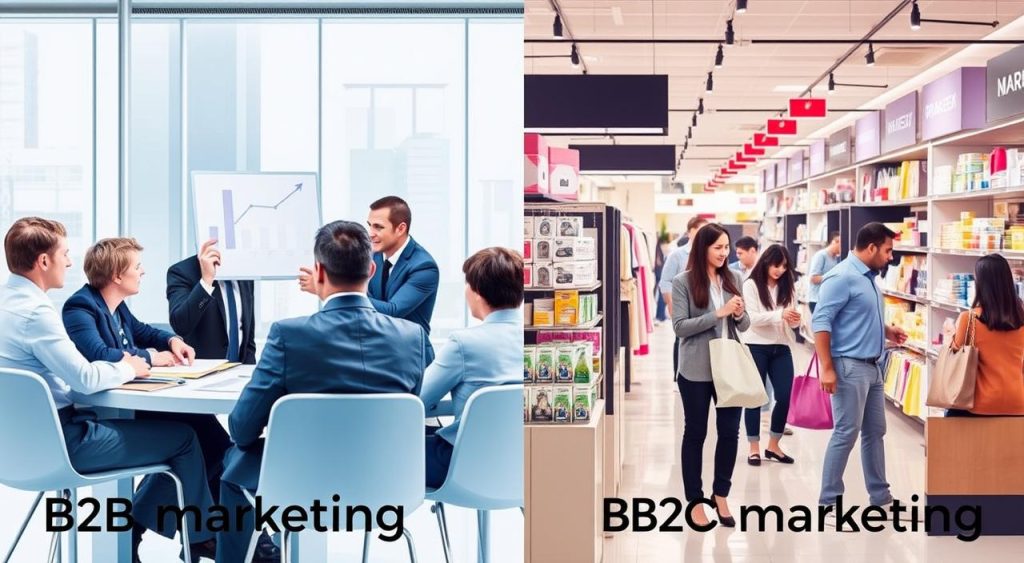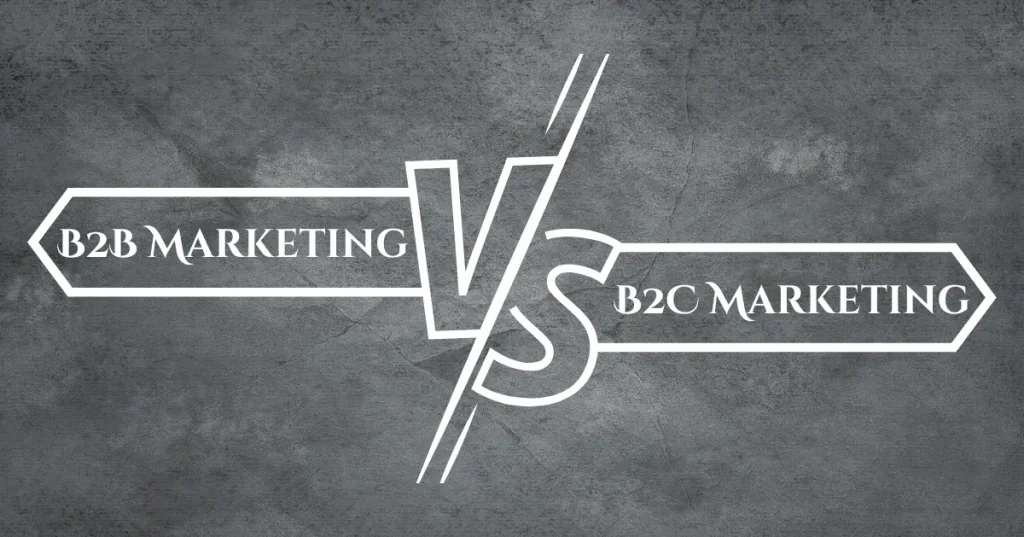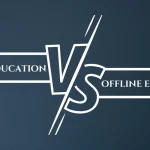Knowing the difference between b2b vs b2c marketing is key for businesses. B2B marketing is between companies, needing longer sales and complex decisions. On the other hand, b2c marketing is for individual consumers, with quicker sales and a focus on feelings.

It’s important to know the difference in marketing. By understanding each type, companies can make better plans. This helps them reach their audience better, whether it’s other businesses or people, leading to success.
Understanding the Core Difference Between B2B vs B2C Marketing
To get good at marketing, knowing the difference between B2B and B2C is key. B2B marketing aims at professionals, while B2C targets everyone. The way to sell and the customer’s journey are different too.
Also Read: Gross Profit vs Net Profit: Key Differences Explained
B2B marketing needs to understand the audience well. It builds strong relationships and offers special value. B2C marketing, on the other hand, aims to connect emotionally with customers. It uses branding and makes sure customers have a great experience.
The way people decide to buy is different for B2B and B2C. B2B takes longer because it involves more people. B2C is quicker, focusing on feelings and making customers happy. Knowing these differences helps marketers create better plans that work.
Also Read:
| Marketing Type | Target Audience | Sales Cycle | Decision-Making Process |
|---|---|---|---|
| B2B | Professionals | Longer | Complex |
| B2C | Consumers | Shorter | Emotional |
Strategic Marketing Approaches in Both Domains
Marketing strategies are key for success in B2B and B2C markets. In B2B, account-based marketing and content marketing are vital. They help build personal connections and show leadership. B2B sales tactics, like lead generation, drive revenue and growth.
Also Learn: Marketing vs Advertising: What’s the Difference?
B2C marketing focuses on broad awareness and engagement. It uses social media and other channels. Knowing B2C customer behavior helps create marketing that hits the mark. Social media and influencer marketing build brand loyalty and advocacy.

Combining marketing strategies, like B2B lead generation, boosts performance. The aim in both markets is to engage, convert, and keep customers. By understanding each market and using the right tactics, businesses can meet their goals.
Developing a deep understanding of target audiences and their behaviors is critical for creating effective marketing strategies that drive results.
Businesses should focus on their audience’s needs and preferences. This approach creates marketing that resonates and engages. Whether it’s B2B sales or B2C customer experience, the goal is to tailor marketing to each business’s unique needs and goals.
Conclusion: Maximizing Success in Your Chosen Market
In marketing, knowing the difference between B2B and B2C is key. Businesses can hit their mark by focusing on the right marketing approaches. This way, they can connect with their audience and see real results.
It doesn’t matter if you’re into B2B marketing strategies or B2C marketing techniques. The important thing is to know the difference between b2b and b2c marketing. Tailor your efforts to meet your target market’s needs. This boosts your success chances.
As you move through the fast-changing world of marketing, understand the B2B and B2C differences. This knowledge helps you create strong campaigns. It builds real connections and helps you reach your business goals efficiently.
FAQ
What are the key differences between B2B and B2C marketing?
B2B marketing targets businesses, with longer sales cycles. It deals with complex decisions. B2C marketing aims at individual consumers, with shorter cycles and emotional appeals.
How does the target audience differ in B2B and B2C marketing?
B2B marketing targets business leaders, focusing on company needs. B2C marketing aims at individual consumers, influenced by personal feelings and choices.
What are the differences in the decision-making process and sales cycle length between B2B and B2C marketing?
B2B sales cycles are longer, involving more stakeholders. It requires aligning with company goals. B2C sales cycles are shorter, driven by personal choices and impulse.
How do the value proposition and purchase motivation differ in B2B and B2C marketing?
B2B marketing focuses on cost savings and efficiency. It aims to solve business problems. B2C marketing appeals to emotions, like personal satisfaction and lifestyle. It’s driven by individual desires.
What are the differences in relationship building and customer engagement between B2B and B2C marketing?
B2B marketing builds strategic relationships with stakeholders. Success depends on these partnerships. B2C marketing creates engaging experiences and builds loyalty through various channels.



